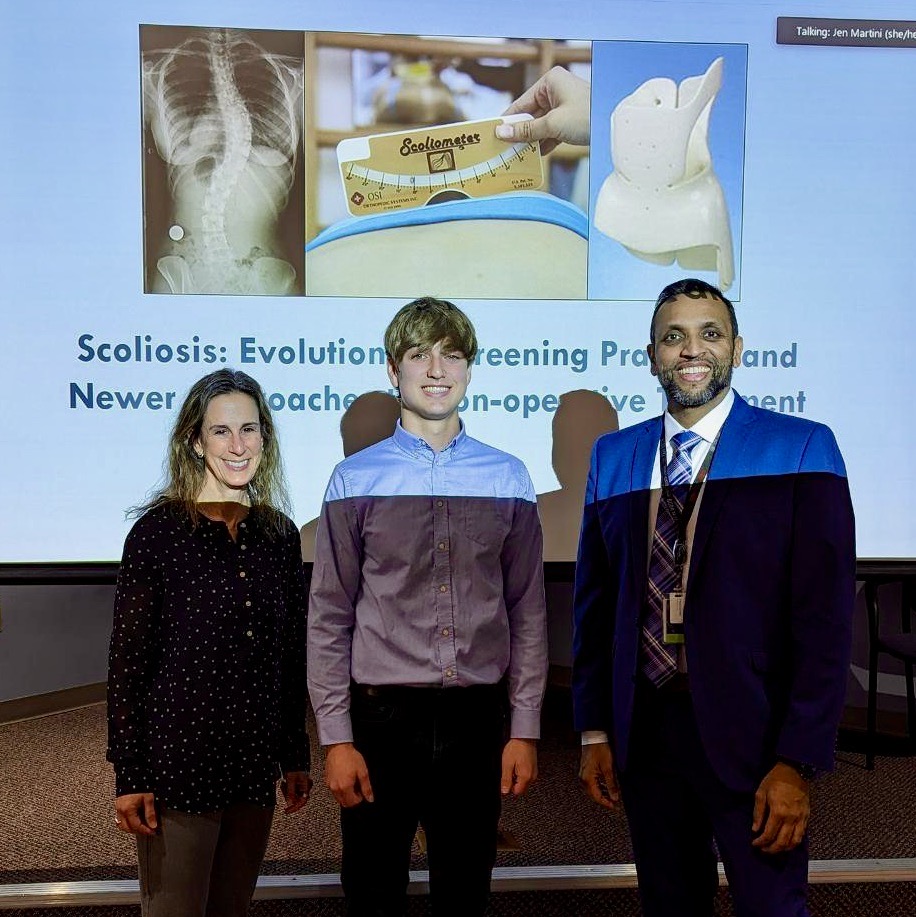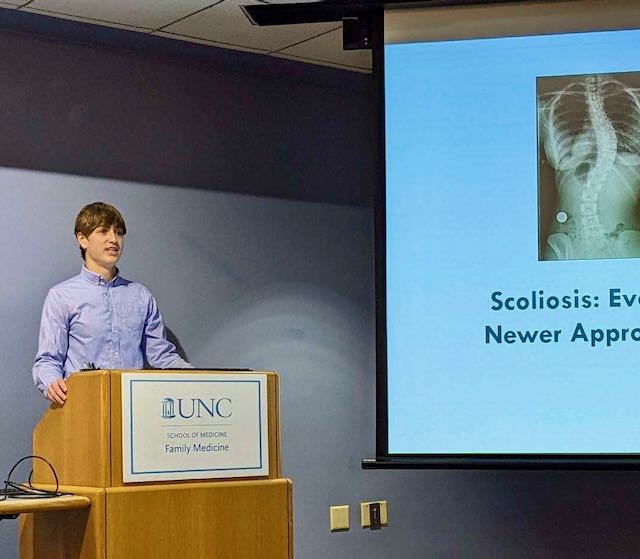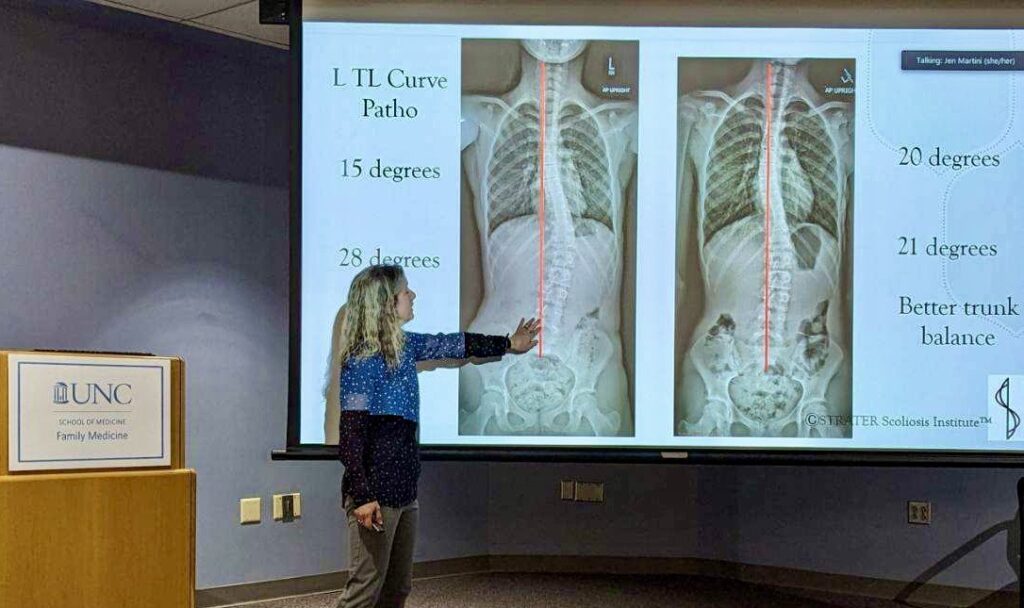
Pediatric physical therapist, Lisa Mangino was invited to speak at UNC about the importance of early detection of scoliosis through routine screening. Residents and Fellows in UNC’s Family Medicine Group heard from Lisa, one of Lisa’s conscientious teenage patients, and Dr. Vinay Narotam a UNC Orthopaedic Surgeon with expertise in scoliosis. This trio addressed a group of residents and fellows in UNC’s family medicine group on the importance of early screening for early detection of scoliosis in juveniles and adolescents.



Lisa’s patient, Tate, was diagnosed with a spinal curvature after he was too skeletally mature to benefit from a rigid thoracic scoliosis brace. Fortunately, his family found us at Advance Physical Therapy, and he came to us for conservative, scoliosis-specific physical therapy (PT). He worked hard on his daily PT program and was fortunate to have his curve improve. Tate was able to avoid spinal fusion surgery for curvature correction. Further, his diagnosis prompted his younger sister to be screened. Scoliosis tends to have a genetic component, and it was not surprising that she also had scoliosis. Because her curve was found earlier in her growth, she was able to benefit from a brace as well as physical therapy. These conservative treatments, along with her diligent attitude toward her PT program, kept her surgery-free and with visible curve reduction.
Tate’s passion for education of medical professionals for early screening of scoliosis is admirable and may keep others out of the operating room. For those patients who have advanced curves, surgical correction is appropriate and necessary. We have found early screening, leading to early treatment in the form of proper bracing and scoliosis-specific physical therapy, to be highly effective for patients who can commit to this type of daily exercise program.
For more information, see other posts on this website or call our office to speak to one of our clinicians.
Early Screening Makes a Difference!
-Lisa Mangino, PT, DPT, C/NDT, PRC, SBS-C2
